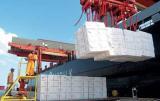

The Production Engineering curse of the Federal University of Bahia was created in 2008 by the Resolution No. 640/08 of 16/08/2008 of Undergraduate Studies Chamber of UFBA. Admission to the course is done in the 1st half of each year through the entrance examination held on the previous year. There are 45 places available.
The objectives of the course, desired profile of graduates and the skills and abilities to be developed, are in agreement with the national engineering education guidelines. In this sense, the course provides the student of Production Engineering to learn and develop skills for the design and analysis of products and processes for the operation and improvement of production systems, and to be able to lead workinf teams with effective communication skills.
Also in terms general skills, the Production Engineer is able to apply scientific knowledge, technological and instrumental engineering; design and conduct experiments and interpret results; conceive, design and analyze systems, products and processes; plan, supervise, develop and coordinate projects and engineering services; identify, formulate and solve engineering problems; develop and/or use new tools and techniques; oversee and evaluate the operation and maintenance systems; communicate effectively in written form, orally and graphics; work in multidisciplinary teams; understand and apply the professional ethics and responsibility; assess the impact of engineering activities on social and environmental context; evaluate the economic viability of engineering projects; assume the posture of permanent search for professional development.
The syllabus of the Production Engineering course prepares students for professional life in a wide area of??expertise. Thus, the Production Engineer can work in three sectors of the economy, namely: the primary (agriculture), secondary (industry) and tertiary (trade and services). Examples of some segments of these industries where these professionals work are: agriculture (sugarcane, pulp and paper); industrial (automotive, construction, agro-industry, oil and petrochemical, sugar and alcohol, mining and steel); trade and services (banks, insurance companies and consultancy). Still can the Production Engineer, perform activities in public administration, like locational analysis and investment for installation projects, or even in the organization and management of sporting and artistic and cultural events, as well as non-governmental organizations (NGOs)